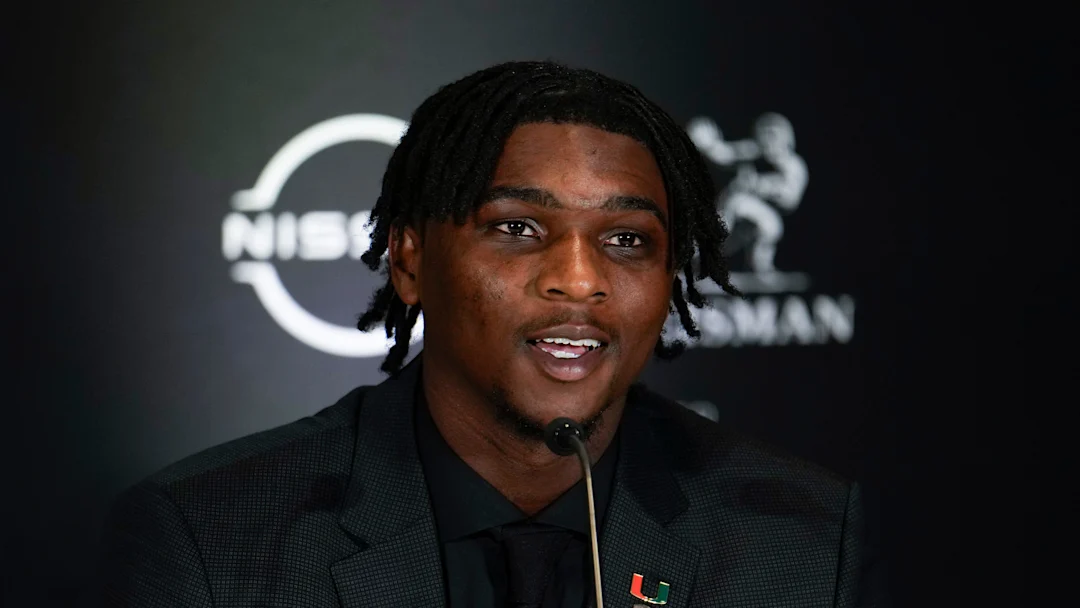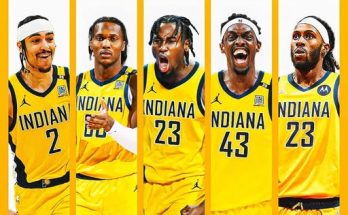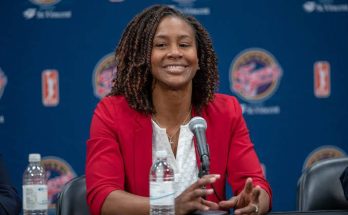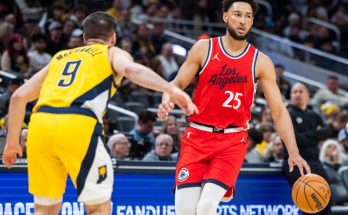The Tennessee Titans are entering a critical phase of their rebuild, as they search for the right quarterback to lead the team into the future. In a quarterback class that includes some tantalizing prospects, including Shedeur Sanders, son of NFL Hall of Famer Deion Sanders, and Cam Ward, a dynamic dual-threat quarterback out of Washington State, analysts have been weighing in on why the Titans are reportedly prioritizing Ward over Sanders. This analysis isn’t just about the quarterback’s individual skill set, but also about how their styles align with the Titans’ philosophy and long-term vision.
At first glance, both Ward and Sanders stand out for their exceptional playmaking ability and potential to transform an offense. Sanders, who garnered national attention last season under his father’s tutelage at Colorado, has shown the ability to elevate a program with his impressive passing accuracy, leadership, and playmaking. However, despite the hype surrounding Sanders and his pedigree, several experts believe that Ward offers a more tailored fit for the Titans’ needs, both on the field and in the locker room.
For the Titans, a team that has long built its identity around tough, smash-mouth football, the next quarterback should embody that physical mentality, paired with the ability to make quick, decisive decisions under pressure. Ward, whose skill set combines the tools of a traditional pocket passer with the agility and speed of a dual-threat quarterback, fits this mold perfectly. He has proven himself capable of reading defenses, making high-level throws, and using his legs to extend plays or pick up critical first downs. This dual-threat ability adds a level of versatility to his game that makes him an appealing option in today’s NFL, which increasingly values quarterbacks who can make plays outside the pocket.
In contrast, while Shedeur Sanders has demonstrated considerable ability, particularly in his ability to read defenses and make accurate throws, he has not shown the same kind of versatility in his game. Sanders’ game is often reliant on a quick, fast-paced offense and precise execution in the pocket, a system that may not align as seamlessly with the Titans’ ball-control, run-heavy offense. The Titans’ offensive line struggles have also been well-documented, and the team’s inability to protect its quarterbacks effectively over the years could present a significant obstacle for a more traditional pocket passer like Sanders, who thrives in a system that offers protection for the passing game. Ward, conversely, has the tools to evade pressure and create opportunities with his legs when the pocket breaks down. This is a crucial consideration for the Titans, who may not be in a position to overhaul their entire offensive line immediately.
Moreover, there are questions about Sanders’ ability to perform under the kind of pressure he would face at the NFL level, especially given the circumstances of his college career. While his college performance has been stellar, Sanders has not faced the same level of competition that many of the top quarterbacks in the class have, particularly in the grueling SEC. The Titans are a team that is looking for a player who can handle the immense pressure of being an NFL starter from day one, and many believe that Ward, with his more varied experience and adaptable style, is better suited to make that transition smoothly.
Ward’s play at Washington State showed a remarkable maturity in his decision-making, which has been a major point of emphasis for NFL scouts. His ability to read the defense pre-snap and make adjustments on the fly is a trait that will help him adjust to the speed of the NFL, where the defensive schemes are constantly evolving. Additionally, Ward has shown the ability to throw from different platforms, a necessity in the modern NFL, where quarterbacks are often required to make off-platform throws while under pressure. Whether rolling to his right or left, Ward demonstrates the ability to make accurate passes from awkward angles, something that is increasingly in demand at the next level.
This type of playmaking ability is something that the Titans need, as they have struggled to find a quarterback who can make plays when the pocket breaks down. In contrast, while Sanders is capable of making some incredible throws, especially on quick passes and in rhythm, his ability to create plays on the move or outside the pocket has not been as refined. This is a critical difference, as NFL defenses will quickly expose quarterbacks who are not mobile or able to adapt to the chaotic nature of the league’s pass rushes.
Additionally, the Titans have a strong running game, led by Derrick Henry, which is the cornerstone of their offense. Ward’s dual-threat ability allows him to be a true complement to this system, as he is capable of reading the defense and using his legs to keep defenses honest. This creates an added dimension that can confuse defenses and open up lanes for both the running game and the passing game. Sanders, while highly accurate, might struggle to create those kinds of mismatches in a run-heavy system that requires a quarterback to balance both the passing and rushing attack. The Titans may feel that Ward’s skills are a better fit for their existing personnel and style of play.
Moreover, there is the issue of intangibles and leadership. Cam Ward has proven time and again that he can lead a team, not just through his play, but through his poise and ability to keep his team calm under pressure. Ward’s leadership extends beyond the field as well. His approach to the game is highly disciplined, and he is widely regarded as a player who understands the mental side of the game—how to read defenses, how to make adjustments, and how to perform when the game is on the line. These traits are invaluable for the Titans, a team that has often been defined by its leadership and work ethic.
On the other hand, while Sanders certainly brings a high level of charisma and leadership to the table, there are lingering questions about his ability to replicate his college success in the NFL. His time at Colorado, although impressive, was characterized by a high-flying offense that was often the focus of media attention. The pressure of leading an NFL franchise, with all of its high expectations and constant scrutiny, may be a more difficult challenge for Sanders than some might think. The Titans may value Ward’s more understated leadership style and his ability to lead through his play rather than relying on his personality to inspire his teammates.
Ultimately, the Titans are looking for a quarterback who can thrive in their system—someone who can manage the game, make the right decisions, and add an additional element of playmaking to an already strong offensive unit. In this sense, Cam Ward’s versatility, leadership, and dual-threat ability make him the more appealing option over Shedeur Sanders. While Sanders has been one of the most hyped quarterbacks of this draft class, it’s clear that the Titans are looking for a quarterback who can both execute the offense and elevate it when the circumstances demand it. As the team continues its search for the future face of the franchise, Cam Ward appears to be the quarterback who checks all the boxes.
It’s not just about the raw physical tools or the accolades that a player brings with them—it’s about how a quarterback fits into the team’s culture, how they adjust to the demands of the NFL, and how they will help build a winning future. For the Tennessee Titans, Cam Ward represents that future. His combination of skill, leadership, and adaptability makes him the quarterback who has the best chance of leading the Titans to success in the years to come.



